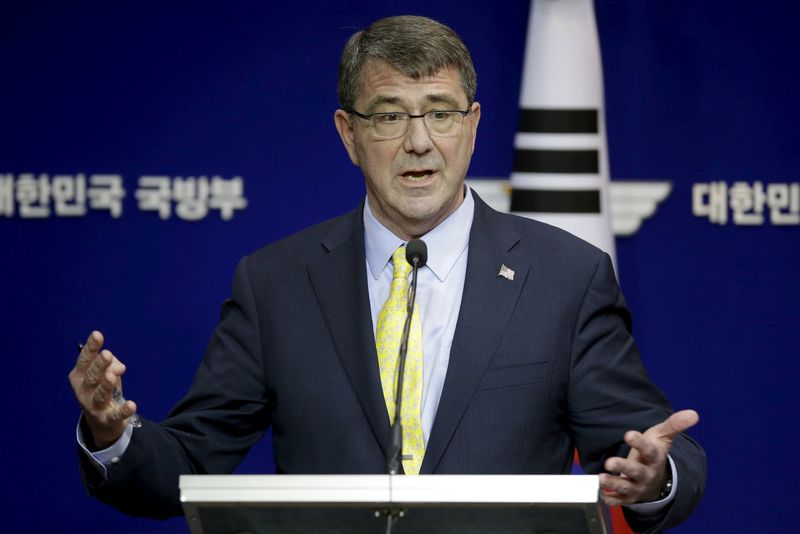By David Alexander and Phil Stewart
WASHINGTON (Reuters) - Calling Republican defense spending plans a "road to nowhere," Defense Secretary Ash Carter appealed on Wednesday for lawmakers to work with him toward a new bipartisan budget deal to provide stable funding for a U.S. military hurt by years of steep cuts.
Carter told a Senate appropriations panel that Republican efforts to try to meet President Barack Obama's defense funding request were well-intentioned but would not give the Pentagon the flexibility it needed and ultimately would lock in budget cuts Obama has threatened to veto.
The president proposed a $534 billion Pentagon base budget for the 2016 fiscal year beginning Oct. 1 that exceeds federal spending caps by $35 billion and could trigger mandatory cuts. Obama also sought $51 billion in funding for conflicts overseas in an account not covered by the spending caps.
The Republican-controlled Congress, which opposes many of Obama's spending priorities, is considering a $499 billion Pentagon base budget that would not exceed spending caps. But it is studying $90 billion in war funding, $39 billion more than requested, to make up for cuts in the base budget.
"While this approach clearly recognizes that the budget total we've requested is needed, the avenue it takes is just as clearly a road to nowhere," Carter told the appropriations panel, noting that Obama has threatened to veto a budget that locks in current spending caps.
If that happens, Carter said, the Pentagon would be facing another autumn of budget uncertainty when it is unable to plan effectively and has to make the kind of "hasty and drastic" decisions it has had to make over the past few years.
Those decisions have forced the military to make quick, short-term cuts from accounts for readiness, training and modernization, leaving the force increasingly unbalanced.
Army General Martin Dempsey, chairman of the Joint Chiefs of Staff, told the panel the cuts have put the United States in a position where "our global aspirations are exceeding our available resources."
Carter said if Congress continued to push ahead with the Republican plans rather than exploring other alternatives he feared "we'll all be left holding the bag."
Congress and the president have directed the Pentagon to cut about a trillion dollars in planned defense spending over a decade.

The reductions come as the U.S. military is trying to modernize aging weapons while coping with threats unforeseen just three years ago, including the rise of Islamic State militants in Iraq and Syria and Russia's involvement in Ukraine.